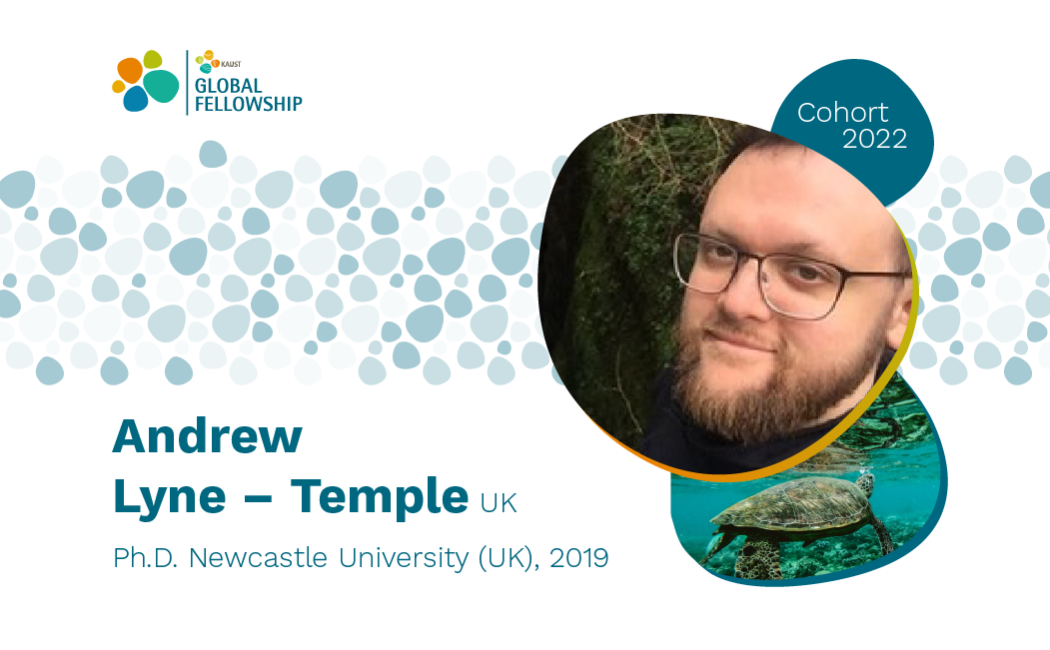


01 June, 2023
Meet Andrew Temple, an interdisciplinary researcher with expertise in the fields of ecology, fisheries science, and socioeconomics. He is one of the Cohort 2022 KAUST Postdoctoral Global Fellows.
With a background in Marine Biology, Andrew holds a PhD in Fisheries Sciences and Management from Newcastle University, UK. His research and consultancy work focusses on the interactions between marine vertebrates (marine mammals, sharks, rays, turtles, and finfish) and human impacts. His research ranges from European waters to the waters of the Indo-Pacific and South America, as well as taking a global perspective.
“Marine biodiversity is vital in enhancing the health, food, and nutritional security of KSA, supporting economic diversification through tourism (particularly the giga-projects), fisheries, and aquaculture, and protecting KSA against the impacts of climate change. However, few marine species have adequate data to facilitate effective conservation and management”, he states.
Within his KAUST Global Fellowship independent research, Andrew is leveraging widely available morphological traits and a suite of powerful machine learning techniques in a novel interdisciplinary approach that combines natural, social, and economic sciences. His fellowship is addressing Red Sea fishes and aims to facilitate the effective conservation, management and policy actions needed to ensure KSA’s ambitious Vision 2030 goals are achieved.
“Fisheries are the most immediate threat to marine biodiversity at the global level. My vision is to utilize a century of evolution and ecology science to triage whole species assemblages, identifying species least resilient to human exploitation, and those vital to ecosystem health and the human communities dependent upon them.”, Andrew says.
Andrew is working at the Reef Ecology Lab with KAUST Professor Michael Berumen and is affiliated with the Red Sea Research Center (RSRC).